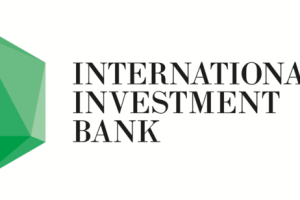Alătură-te comunității noastre!
Vezi cele mai recente știri & informații din piața de capital


The U.S. stock market experienced a noteworthy week, with the S&P 500 Index breaking the 5,000-point barrier for the first time, underscoring a significant milestone in market valuation.
This achievement, however, was characterized by a narrow advance, indicating that the rally was led by a select group of stocks rather than a broad-based participation.
The disparity between the market-weighted and equally weighted versions of the index highlighted this concentration of gains. The market’s momentum was further influenced by a successful $42 billion U.S. Treasury note auction, which alleviated some concerns about rising borrowing costs potentially impacting the Federal Reserve’s ability to adjust interest rates to stimulate the economy.
Despite a slow start to the week, investor sentiment was buoyed by individual company earnings reports, with small-cap stocks showing resilience later in past the week.
However, the banking sector, particularly regional banks, faced challenges, highlighted by the significant drop in shares of New York Community Bank following its acquisition-related announcements.
In Europe, the markets saw modest gains with the STOXX Europe 600 Index slightly up, propelled by strong corporate earnings.
Nevertheless, the optimism was curbed by the anticipation of persistently high interest rates, as signaled by European Central Bank (ECB) officials.
They emphasized the importance of not rushing into rate cuts, given the current economic indicators such as resilient labor markets and inflationary pressures in the services sector.
This cautious stance was mirrored in the UK, where unexpected economic resilience could further delay any monetary easing by the Bank of England.
The ECB’s stance, particularly the remarks by board member Isabel Schnabel and Chief Economist Philip Lane, reflects a broader European caution towards inflation and rate adjustments.
Italy and France saw notable stock market gains, whereas the UK and Germany’s markets had mixed performances, underscoring the varied economic outlook across the continent.
This cautious optimism reflects the complex interplay of factors influencing European markets, from corporate performance to geopolitical tensions and supply chain disruptions.
Beyond the U.S. and Europe, Japan’s stock market made gains, with the Nikkei 225 hitting a 34-year high, although the rally was tempered by currency movements and adjusted expectations for U.S. interest rates.
The Bank of Japan’s assurance of continued accommodative policies reflects ongoing efforts to reach sustainable inflation targets amidst mixed economic signals.
In contrast, China’s markets experienced a rally, driven by government stimulus measures aimed at countering deflationary pressures and stimulating consumer demand.
Despite the challenges posed by a cooling property market and weak consumer demand, these proactive measures indicate a strong governmental commitment to economic stability.
Last week’s global market activity highlights the delicate balance between growth and inflation, the impact of monetary policies, and the pivotal role of government interventions in shaping market trajectories.
Overall, last week’s developments across these diverse markets reflect a complex interplay of factors, including corporate performance, monetary policy expectations, and macroeconomic indicators.
Investors and policymakers alike are navigating a nuanced landscape, balancing optimism with caution as they respond to evolving economic signals.









Vezi cele mai recente știri & informații din piața de capital